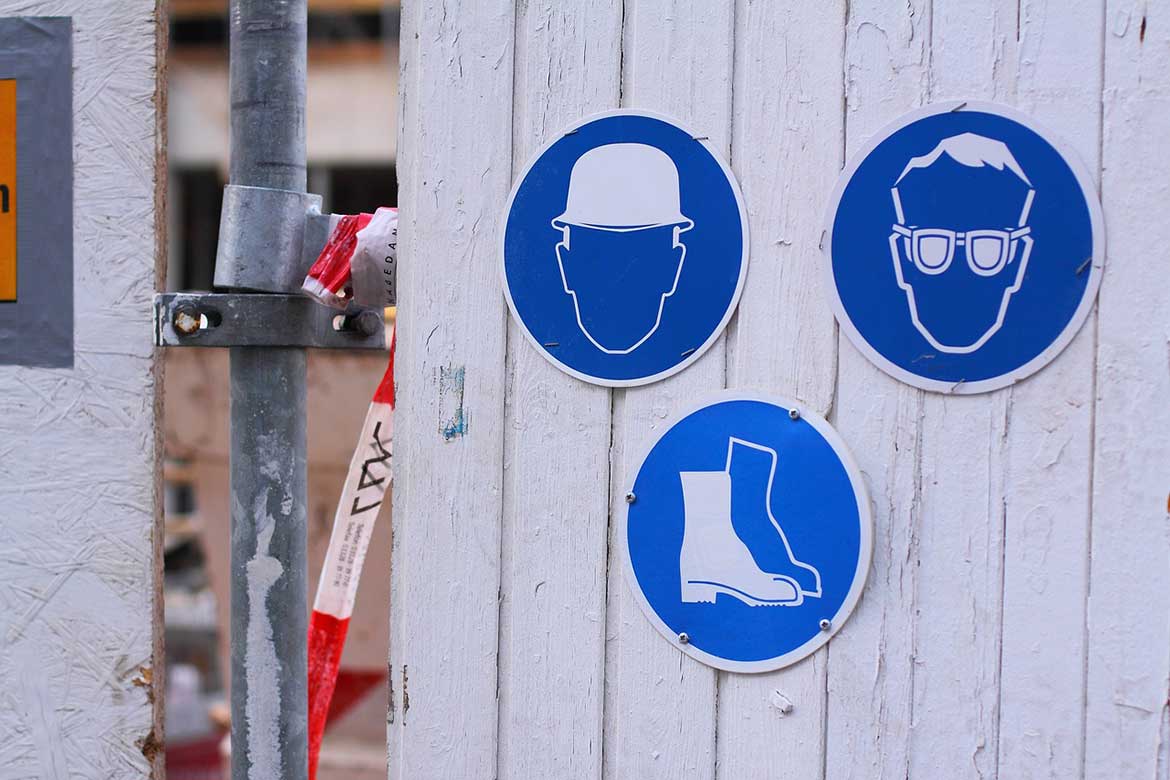8th August, 2024
How Often Should A Toolbox Talk Be Undertaken?
Toolbox talks are a great way to keep your workforce refreshed and provide health and safety information. But how often should toolbox talks be carried out? Monthly, weekly, daily... more often? In this blog post, we consider how often toolbox talks should be undertaken.

Many businesses carry out toolbox talks from time to time. These might be formally recorded or as casual conversations. They might be called safety briefings, safety chats, toolbox talks or safety moments. They might not even have a name. But businesses that create a formal structure around their safety talks, and do them often, can get the most benefits.
- Improved safety knowledge
- Better safety compliance
- Reduced accident rates and ill health

Should you bother giving toolbox talks?
Yes. Toolbox talks are a great way to provide health and safety information to your team and we've just discussed some of the benefits. They also help your business comply with legal requirements.
Just because toolbox talks aren't a specific legal requirement, doesn't mean you shouldn't do them. Various regulations do require the provision of information to employees, such as the Health and Safety at Work etc. Act and the Management of Health and Safety at Work Regulations. And toolbox talks are one way of providing that information to comply with the law.
- (1) Every employer shall provide his employees with comprehensible and relevant information on — (a)the risks to their health and safety identified by the assessment, (b)the preventive and protective measures...
- (2) Every employer shall ensure that his employees are provided with adequate health and safety training.
Toolbox talks are not the only way to provide this information - other legal requirements such as inductions, risk assessments etc can be used to communicate this information. And full training courses should also be provided as necessary.
But toolbox talks are a great way to keep your workforce refreshed and provide information that is both relevant and timely. If training courses were carried out months, or even years, ago, toolbox talks are a great way to refresh knowledge. If the topic has never been covered before, toolbox talks are also a great way to provide new information.
How often should toolbox talks be carried out?
Well, firstly, there is no specific legal guidance on this. There are no rules that say you have to undertake toolbox talks, daily, weekly or on the first day of each month. It is down to you to decide when to carry out your toolbox talks.
And we recommend daily toolbox talks.
This might be more often than you expected. It might not even seem possible to fit in a daily toolbox in your workplace. How will you start a safety talk every single working day?

How will you find the time?
How will you find the topics?
Toolbox talks shouldn't take up much of your time. 5-10 minutes should be all that's needed. You should get that time back in increased productivity once you find that workers' minds are much more focused on the job after a quick chat about the task at hand.
And because toolbox talks are short, they can be done regularly without taking people away from their work.
If you drag your talk out for longer than 10 minutes, you risk losing the attention of your audience and drowning out important information. If your talks are boring and long then they won't be effective, and they will eat into the workday.
We recommend completing talks daily, or at least weekly so that they:
- Become part of your routine
- Get easier with practice
- Are done often enough to make a difference
- Stay short
- Cover one topic at a time
- Are relevant to the work taking place
When you give toolbox talks often, you can make sure you talk about relevant health and safety topics. It is not so much use telling your employees about a hazard or risk they are exposed to after the fact. It's too late. They need to know how to deal with a situation before they need to, you know, deal with it.
Wondering how to come up with enough topics for regular toolbox talks? Check out our blog post with details of 100 toolbox talk topics you can use.
Regular toolbox talks, daily, or on a weekly schedule, will allow you to pick a topic relevant to the work that is taking place at that specific time.

And safety talks don't need to take up a lot of your time. A 5-minute chat before the shift starts can be all it takes to raise awareness of a topic and get people's minds on the health and safety issues they are about to deal with.
Toolbox talks should follow the mantra, little and often.
These short safety talks deliver a bitesize chunk of important information. And given at the right time, on the right topic, they can make a real difference to your health and safety performance.
Why you need to give toolbox talks frequently
Drip feeding important health and safety information, and doing it regularly, helps you to create a positive health and safety culture amongst your team. These talks open up communication channels around relevant topics and demonstrate management commitment to health and safety.
Pretty soon, everyone has safety on their mind.
Talking about safety has become normal. It's become routine. It's part of the working day.

And it's amazing how this can have a knock-on effect on other safety initiatives.
- Near-miss reporting goes up.
- Safety awareness increases.
- Compliance improves.
- Accidents are reduced.
People stop ignoring health and safety rules and start actively participating in creating a safer workplace.
Toolbox talks shouldn't be the only tool in your belt, so to speak, but they can be a crucial part of your overall health and safety management.
Not every business will need, or benefit from, daily toolbox talks. Every business is different.
How often you carry out toolbox talks will depend on the risks and type of work you are undertaking, but it is good to get into a routine. This will allow you to cover a variety of topics at the time the information is most relevant and therefore valuable to your work.

In a high-risk workplace like construction, where the team and activities change day to day, daily toolbox talks make sense. In a lower-risk workplace like an office environment, you might find weekly, or even monthly safety talks make more sense.
Assess your business and decide how frequently it makes sense for you to deliver toolbox talks to your team.
The more often you carry out toolbox talks, the more beneficial they become. Here are 9 reasons to have daily toolbox talks.
Need help delivering toolbox talks? Get started with 30+ free toolbox talks for construction - ready to download and use on your building sites. Or get access to 100+ talks, records, and reports with the Talks Plan membership.
This article was written by Emma at HASpod. Emma has over 10 years experience in health and safety and BSc (Hons) Construction Management. She is NEBOSH qualified and Tech IOSH.
Need toolbox talks?
Get toolbox talks for you and your team with HASpod talks membership.
Talks PlanRecent posts like this...

30+ Free Toolbox Talks For Construction
Carrying out regular toolbox talks isn't always easy when you need to come up with a subject, prepare, and deliver the content. It's easier when you have your talk ready and prepared. In this post, we look at over 30 free toolbox talks for construction. Download and use them for your site.
Read Post
The Best 100 Safety Topics For Daily Toolbox Talks
It can be hard to think of ideas for health and safety toolbox talks, but luckily, there are many subjects you can use. Check out these 100 safety topics to help you get started, and find out why each topic is important, who needs to hear it, and what information to cover.
Read Post
How To Write A Toolbox Talk
How do you write a toolbox talk? It's not always easy to start with a blank page and decide what to talk about. And even though toolbox talks are short, preparing the talk is not so quick and simple. Follow our guide and learn how to create the perfect toolbox talk (in less time!).
Read Post